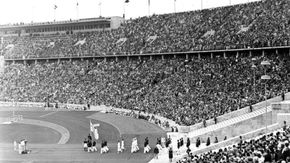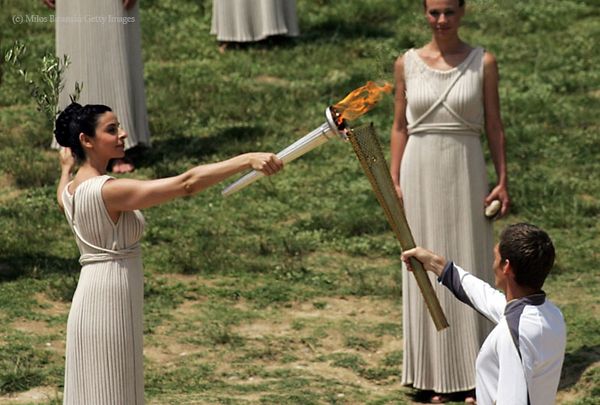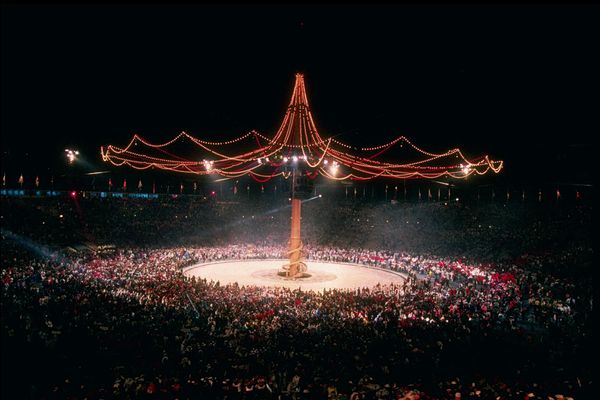
War has a way of really killing the mood. And people. Lots of people. Thanks to two mammoth worldwide conflicts, the Olympic Games have, indeed, been skipped a few times. The games scheduled to be held in 1916, 1940 and 1944 — all years when loads of countries were entrenched in World Wars I and II — were canceled due to the massive carnage that was being carried out.
That's not a decision that the buttoned-up International Olympic Committee (IOC) takes lightly. Even when the IOC decided in 1986 to begin staggering the games so Winter and Summer Olympics were not held in the same year, but in two-year intervals, the games were never skipped. Instead, the Olympics went on as scheduled in 1988 and 1992 and a second Winter Olympics was held in 1994 (Lillehammer) to put the international events apart.
Advertisement
But 1916, 1940 and 1944 were grim years, and holding the Olympics ended up taking a back burner due to the very dire circumstances playing out on the world stage.
World War I and the 1916 Olympics
In the first case, let's set that stage. The year was 1914, and much Olympic preparation was afoot, as directed by the members of the IOC. The flag with its iconic rings was unveiled for the first time, along with the choice of the host city for the 1916 games (back then the host city didn't get the seven years' notice it does now). Ironically, the choice was Berlin.
While the IOC was busy getting ready, Austria-Hungary declared war on Serbia, and the Germans were quick to join the battle, although their targets were primarily Russia and France. Belgium — a neutral nation — was the next target. In response, Britain joined in, and World War I was well underway.
Given the state of world affairs, British members of the IOC protested the fact that Berlin was still the top choice for hosting the 1916 games, and resigned when their demands for an alternative location were not met. At the same time, the Germans were adamant and continued plans for the VI Olympiad. The Germans did issue a caveat though: Only nations who were on their side or neutral could participate. Several U.S. cities offered themselves as replacement sites, while other IOC members said there could be no games until 1920.
Pierre Coubertin, founder of the IOC and widely recognized father of the modern Olympics, had this to say on the matter: The IOC could not withdraw the games without consulting the designated city (which, presumably, would have to give its consent). At the same time, Coubertin noted that it was possible these particular games would not occur.
As the war trudged on, Coubertin's prediction proved accurate. The 1916 games were not held. It was, after all, "The War to End All Wars." The stadium stood silent.
Advertisement



